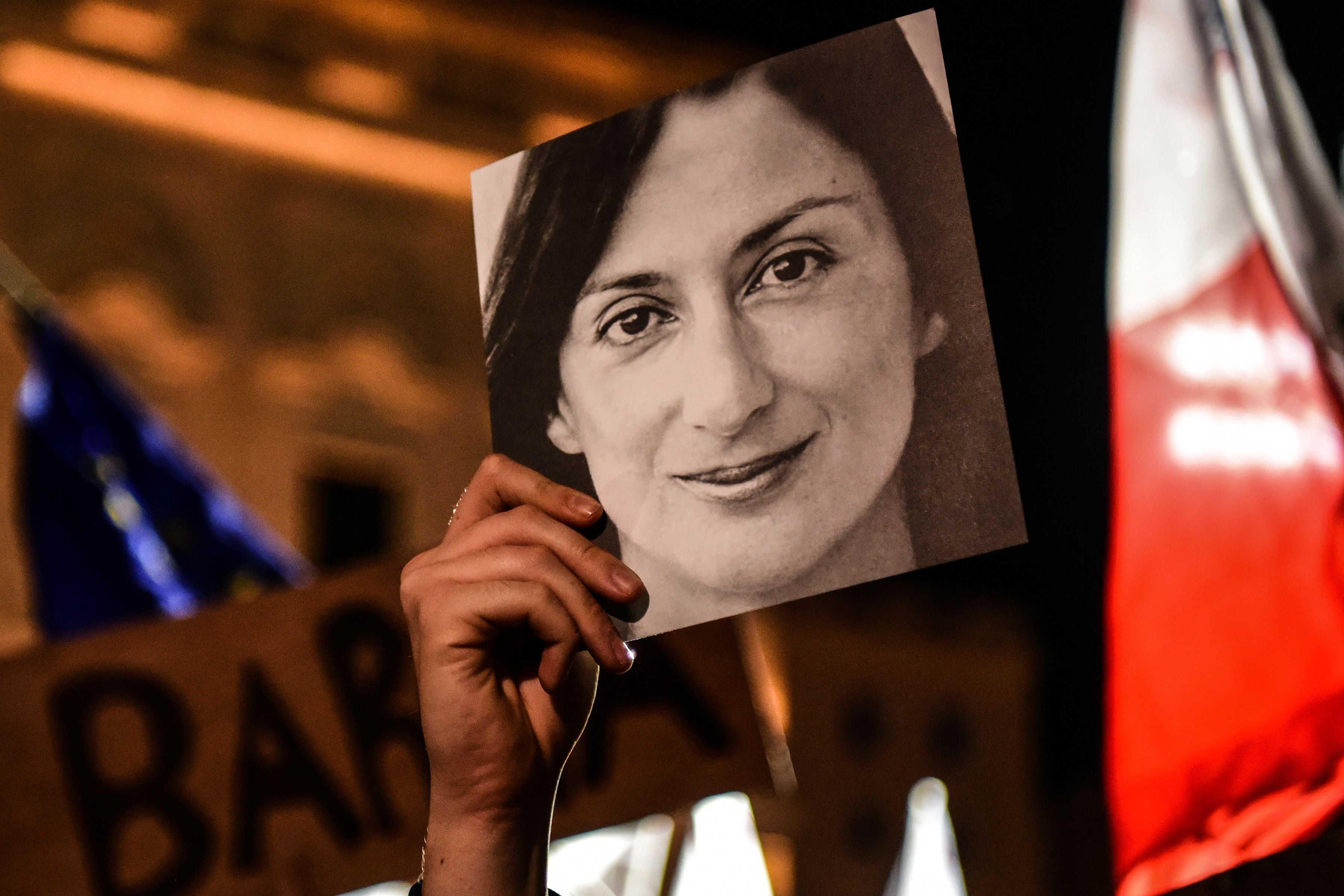Malta government created ‘culture of impunity’ which led to Panama Papers journalist’s murder
Panel of judges says island nation saw ‘collapse in rule of law’ which contributed to Daphne Caruana Galizia’s death

Malta’s government bears responsibility for the murder of an anti-corruption journalist after creating a “culture of impunity” which led to her death, an inquiry has ruled.
Daphne Caruana Galizia was killed in October 2017 when her car was targeted with a bomb as she drove home.
At the time, she was investigating a grid of companies that she believed were channelling kickbacks to Maltese politicians.
Prosecutors allege that a leading businessman with close ties to senior government officials masterminded the murder. Yorgen Fenech, who is awaiting trial for association to murder, denies all responsibility.
Three men suspected of setting off the bomb were arrested in December 2017. One has since pleaded guilty as part of a plea bargain and is serving a 15-year jail term. The other two are awaiting trial.
The self-confessed middle-man has turned state witness and was granted a pardon.
A panel of judges leading the independent inquiry into her murder on Thursday said that “tentacles of impunity” spread to regulatory bodies and the police, “leading to a collapse in the rule of law”.
The inquiry, conducted by one serving judge and two retired judges, said Caruana Galizia's assassination had been linked to her investigative work but that the state did not recognise the immediate risks to her life and failed to take reasonable steps to avoid them.
The judges called for immediate action to regulate the links between politicians and big business.
Malta’s prime minister, Robert Abela, said of the report, which he published: “Lessons must be drawn and the reforms must continue with greater resolve.”
Held separately from a police investigation, the inquiry looked into whether and how far the state was responsible for Caruana Galizia’s death or neglected to prevent it.
Witness testimony had raised concerns about endemic corruption, political involvement in the murder and obstruction of justice.
The inquiry took place despite fierce resistance from the government, which only caved after two years of sustained international pressure and demands from her family.
In a Facebook note posted the day after the murder, her son Matthew, also a journalist, wrote: “This was no ordinary murder... We are at war against the state and organised crime, which have become indistinguishable.”
Additional reporting by Reuters



Join our commenting forum
Join thought-provoking conversations, follow other Independent readers and see their replies
Comments